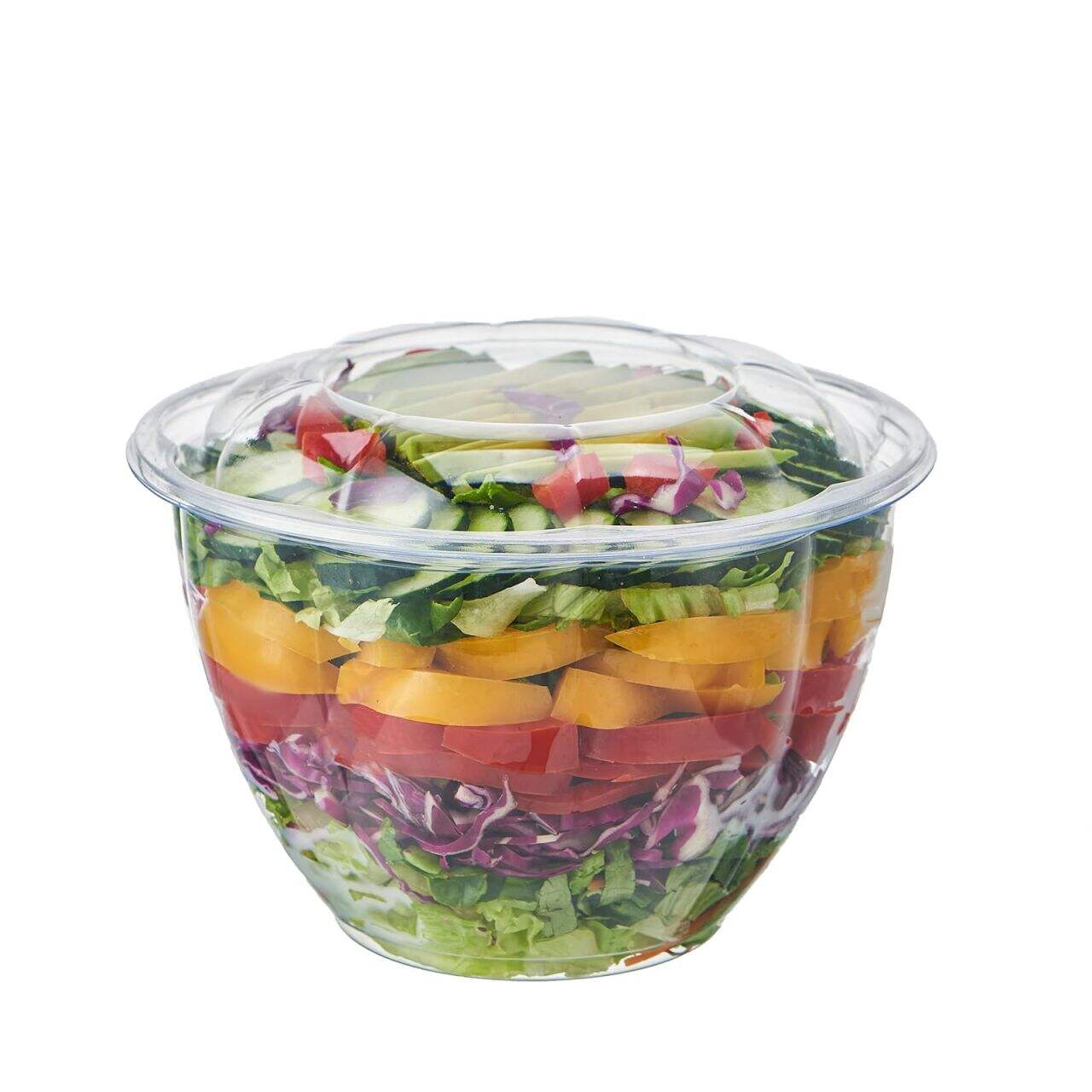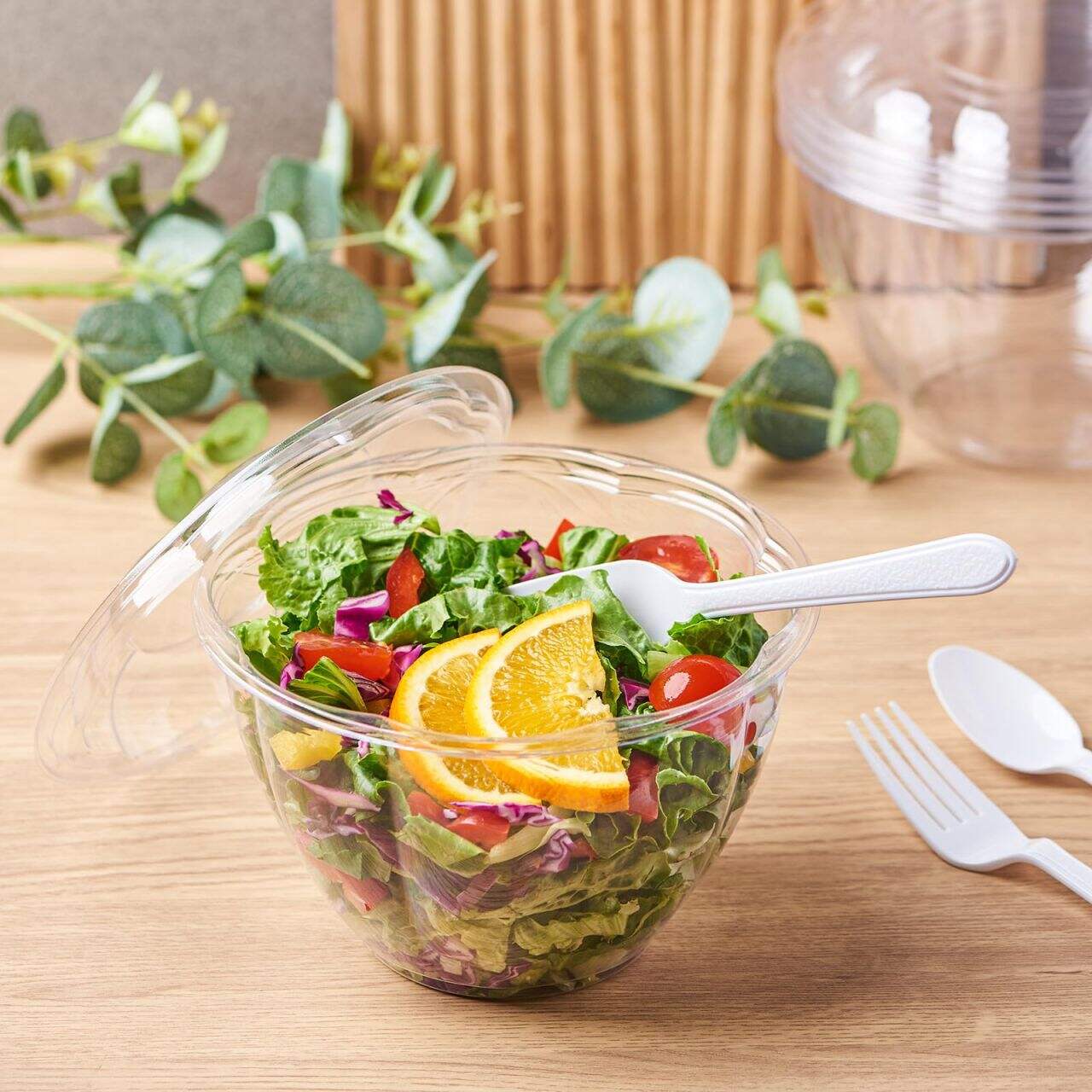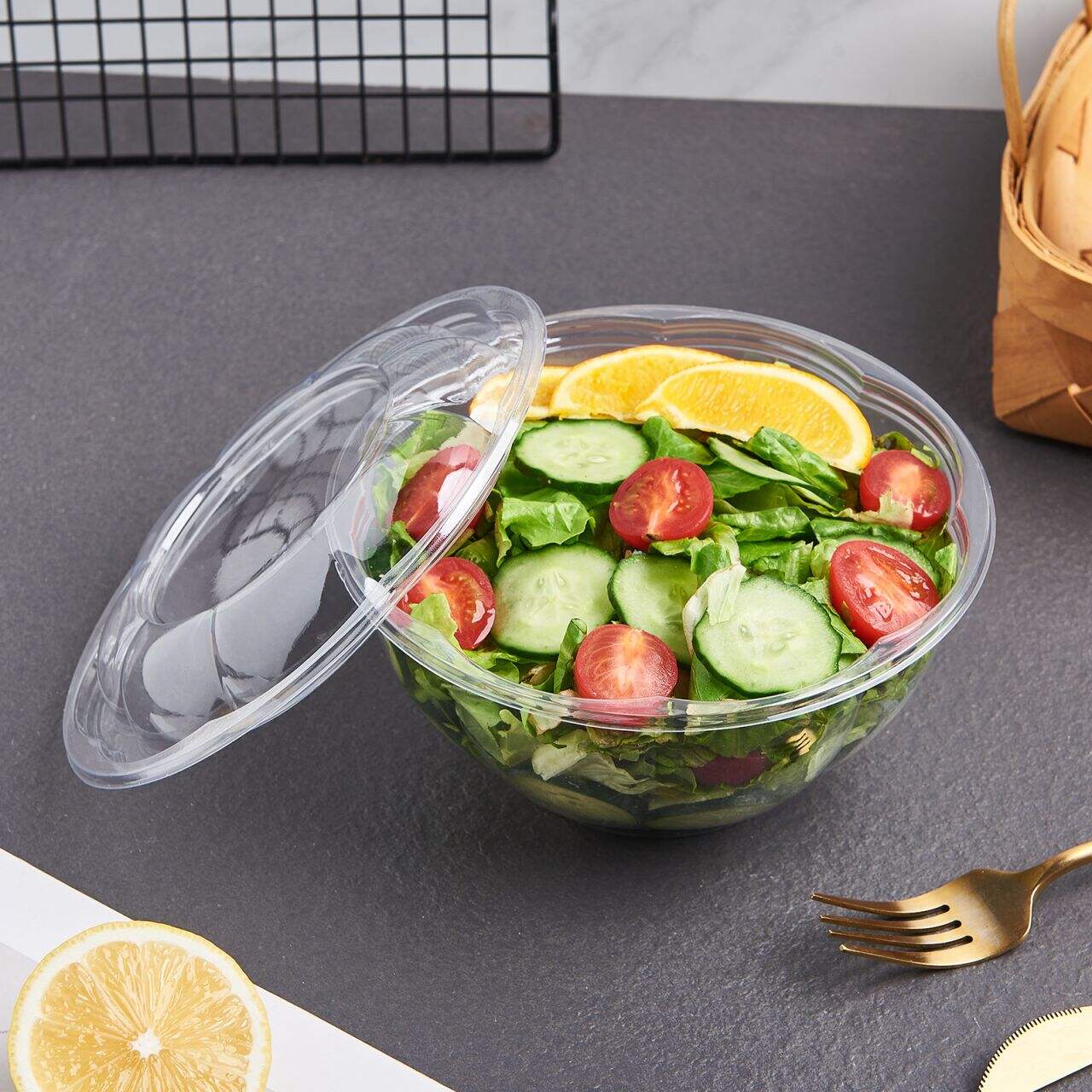Tapi apakah Anda pernah menggunakan wadah plastik untuk menjaga makanan tetap segar atau membawa makanan pulang dari restoran? Mereka sangat tidak ramah bagi pengguna; Tujuan, wadah plastik, namun, berbagai macam kerusakan yang dilakukan terhadap planet ini, dan di bidang lain yang bisa kita sebagai manusia alami. Artikel ini memberikan wawasan tentang mengapa penggunaannya bermasalah dalam jangka panjang dan alternatif apa yang bisa kita gunakan untuk keuntungan ekosistem kita dan diri kita sendiri.
Setelah kita selesai dengan wadah plastik makanan, itu menjadi sampah yang harus pergi ke suatu tempat. Sayangnya, sebagian besar kotak plastik ini berakhir di tempat pembuangan sampah, tuan rumah tempat sampah disimpan. Lebih buruk lagi, beberapa sampai ke lautan kita. Faktanya, wadah plastik bisa memakan waktu lama untuk membusuk, bahkan lama, sehingga waktu itu dapat diukur dalam ratusan bahkan ribuan tahun. Ini berarti bahwa mereka bertahan di lingkungan untuk jangka waktu yang lama dan dapat membahayakan hewan dan tumbuhan saat melakukan ini.
Limbah plastik yang masuk ke laut berbahaya bagi kehidupan laut. Hewan-hewan ini mungkin salah mengira plastik sebagai makanan, mempersepsikannya sebagai sesuatu yang dapat dimakan. Memakan plastik dapat membuat mereka sakit atau bahkan mati. Ini sangat serius karena bukan hanya hewan-hewan tersebut, melainkan seluruh ekosistem yang terkena dampaknya. Bahkan potongan plastik kecil — dikenal sebagai mikroplastik — mencemari air kita dan merugikan satwa liar. Mikroplastik ini dapat mencemari seluruh lautan dan tertelan oleh ikan serta hewan air lainnya, menyebabkan kerusakan lebih lanjut.
Mendaur ulang wadah plastik Anda hanyalah bagian kecil dari solusi besar terhadap polusi plastik. Sebagian besar wadah makanan plastik tidak dapat didaur ulang, sehingga akan tetap menjadi sampah. Bahkan wadah plastik yang dapat didaur ulang seringkali membutuhkan banyak energi dan sumber daya untuk proses daur ulangnya. Proses tersebut bisa sangat kompleks dan mahal. Itu akhirnya menumpuk menjadi gunungan plastik, dan tidak semua orang peduli dengan daur ulang pasca-penggunaan — yang berarti banyak wadah tersebut hanya menumpuk di tempat pembuangan sampah atau terbawa ke lautan kita. Inilah sebabnya mengapa sekadar mendaur ulang tidak akan menyelesaikan krisis limbah plastik.

Untungnya, ada berbagai macam alternatif yang ramah lingkungan yang dapat kita pilih sebagai pengganti wadah makanan plastik sekali pakai. Alternatif yang lebih baik adalah menggunakan wadah yang terbuat dari bahan aman seperti kaca, baja tahan karat, atau opsi reusable lainnya. Wadah-wadah ini dapat digunakan kembali, yang mengurangi limbah yang kita hasilkan setiap hari. Dengan perubahan sederhana ini, kita bisa secara drastis mengurangi jumlah wadah plastik yang mencapai tempat pembuangan sampah dan lautan.

Beberapa restoran dan bisnis juga melakukan hal yang benar dengan beralih ke jenis wadah tertentu yang terbuat dari bahan seperti tebu atau bambu. Wadah semacam itu disebut dapat dikomposkan atau biodegradable. Hal ini memberi mereka kemampuan untuk terurai secara alami, serta tidak merusak lingkungan saat proses tersebut berlangsung. Dengan memilih opsi yang lebih ramah lingkungan ini, Anda berkontribusi pada planet yang lebih sehat bagi semua.

Namun, bahkan di luar kerusakan lingkungan, penggunaan wadah makanan plastik sekali pakai dapat membuat Anda kehilangan uang dalam jangka panjang. Saat individu dan perusahaan terus membeli produk plastik ini, mereka kadang-kadang menghabiskan lebih banyak uang dibandingkan jika mereka berinvestasi dalam wadah yang dapat digunakan kembali. Dalam waktu lama, jumlah ini bisa menjadi cukup signifikan.